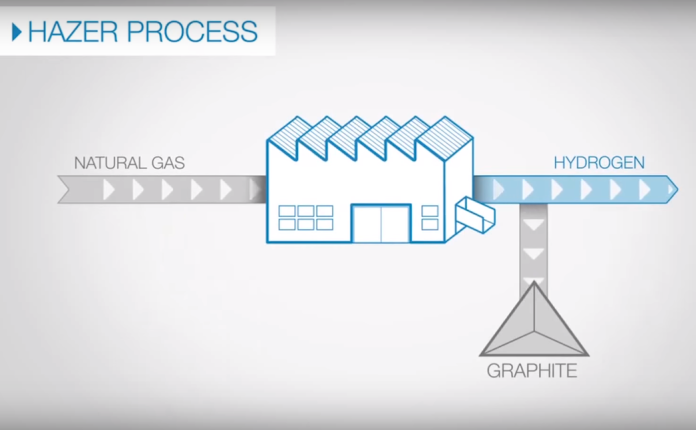
Western Australian-based technology company, Hazer Group, has been given the nod to proceed with the deployment of an Australian-first project that will produce renewable hydrogen and graphite from wastewater.
The proposed plant will be located at Water Corporation’s Woodman Point site in Munster and will use biogas produced at their wastewater treatment plant to deliver fuel cell grade hydrogen, capable of being used as a low emissions transport fuel.
Water Minister Dave Kelly said the three-year operation at Woodman Point Wastewater Treatment Plant will produce around 100 tonnes of fuel-grade hydrogen and 380 tonnes of graphite each year, with the potential for expansion.
“Excess gas produced during the wastewater treatment process is currently burned off but this innovative technology will instead use it to create low-emission hydrogen and graphite,” Mr Kelly said.
“This will help decarbonise the Water Corporation’s operations to further support its sustainability objectives, while generating additional revenue and staff training opportunities.
“I commend the Water Corporation for partnering with Hazer Group to facilitate this renewable waste-to-energy scheme.”
The new plant will utilise technology developed at The University of Western Australia, which capitalises on the waste product of biogas – primarily composed of methane and carbon dioxide – which is released during the wastewater treatment process as solid matter (biosolids) breaks down.
Regional Development Minister Alannah MacTiernan said the project is expected to create up to 20 new jobs and help sustain more than 100 others in the contractor and supply chain.
“Hydrogen is an increasingly important renewable fuel source, and this world-leading project will showcase our State’s capability in the hydrogen industry through the commercialisation of a technology developed right here in WA,” Ms MacTiernan continued.
“The Hazer Group’s project aligns perfectly with the McGowan Government’s Renewable Hydrogen Strategy, set up to position WA as a major producer, user and exporter of renewable hydrogen.
“This initiative represents an important first step towards kick-starting renewable hydrogen production capacity and driving the use of zero-emissions transport fuel for buses, heavy trucking, waste collection, and light vehicle fleets.”



















